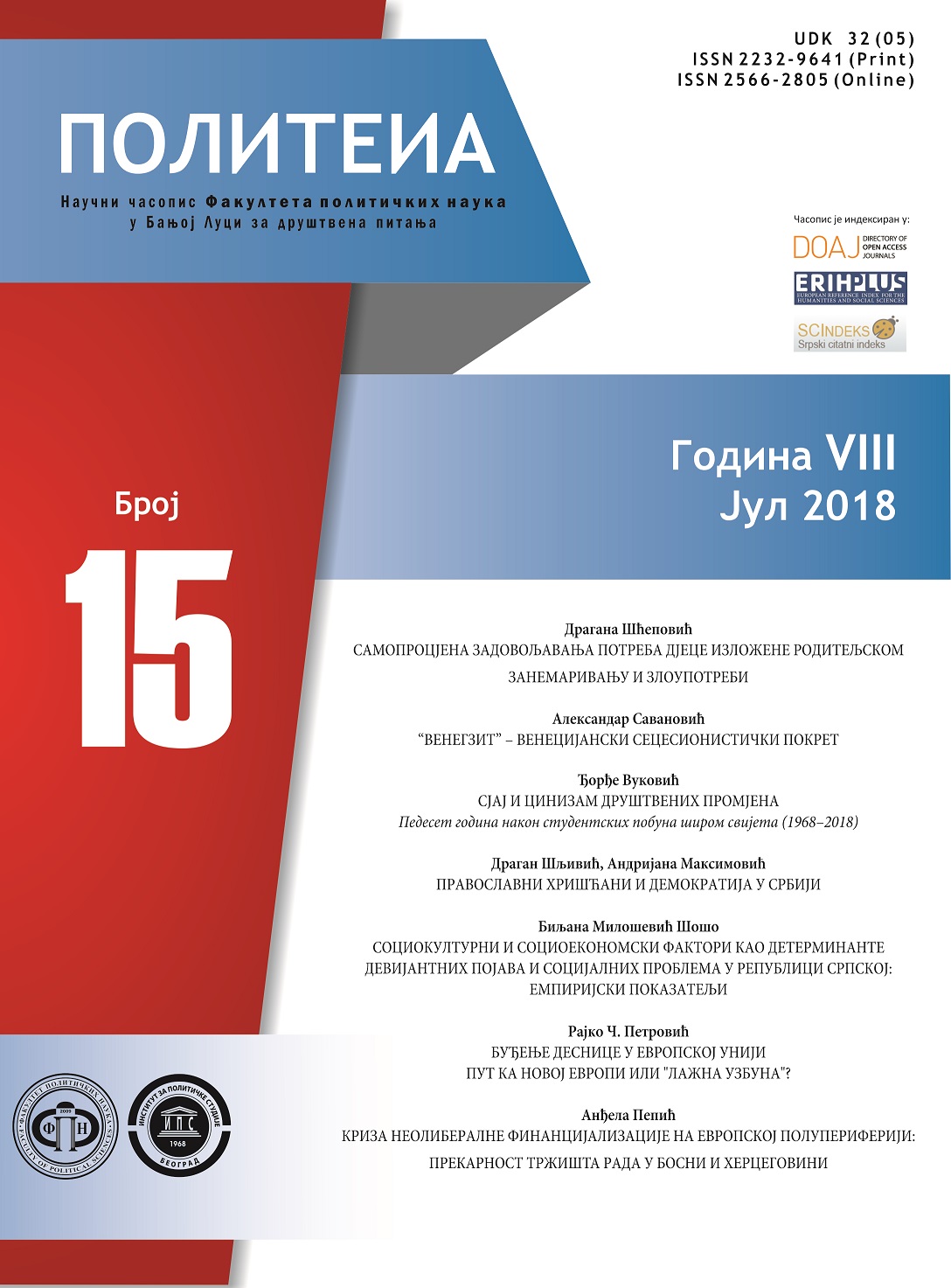Православни хришћани и демократија у Србији
Orthodox Christians and democracy in Serbia
Author(s): Dragan Šljivić, Adrijana MaksimovićSubject(s): Political Theory, Political Sciences, Politics and religion, Politics and society, Eastern Orthodoxy
Published by: Fakultet političkih nauka Univerziteta u Banjoj Luci
Keywords: Orthodox; democracy; religious; political culture; Serbia;
Summary/Abstract: In a significant part of scientific literature and popular works intended for a wider audience, the relationship of Orthodoxy and democracy is often posed as a discussion of two opposing concepts. We can call this “the thesis of incompatibility”, which contains the view that the Orthodox Church has formed dominant Orthodox societies, so that it now faces difficulties in democratization and democratic consolidation. In order to understand the real impact that the membership of Orthodoxy has on democracy, it is necessary, in our opinion, first of all to pay attention to the attitudes of the Orthodox people themselves or to their value orientation, and on that basis consider the proposed explanations (in) compatibility of contemporary interpretation of Orthodox learning and democracy can really be applied to the context of a majority Orthodox society. n this case, we will consider the situation in Serbia, the multiethnic and multiconfessional majority Orthodox state. For our considerations, the parameters of religiosity (religious belief, attitudes towards religious confession and personalized religiosity) are important, as well as the attitude towards various proposed forms of organization of the political community. Based on the data from this study, we have defined four models of political culture. Although the thesis of incompatibility based on our results can be questionable, the data we analyzed still can not draw a clear conclusion that the Orthodox in Serbia have a strong preference for a democratic model of political culture and an appropriate level of participation. They can also be interpreted by a system of values that has been left behind by a society in which much space in the public sphere was left to Orthodox religiousness.
Journal: Politeia - Naučni časopis Fakulteta političkih nauka u Banjoj Luci za društvena pitanja
- Issue Year: 8/2018
- Issue No: 15
- Page Range: 65-84
- Page Count: 20
- Language: Serbian

